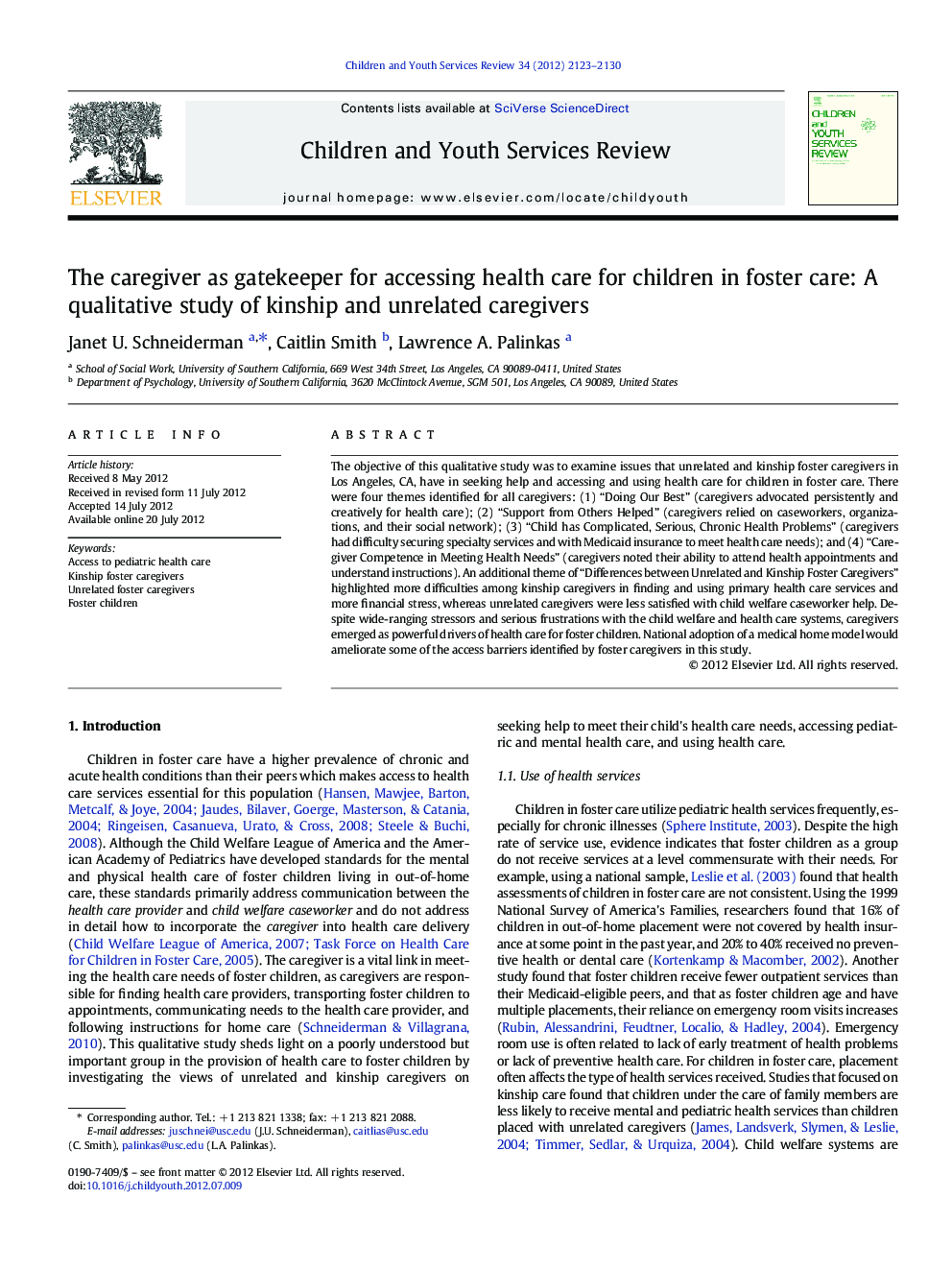| کد مقاله | کد نشریه | سال انتشار | مقاله انگلیسی | نسخه تمام متن |
|---|---|---|---|---|
| 346764 | 617833 | 2012 | 8 صفحه PDF | دانلود رایگان |

The objective of this qualitative study was to examine issues that unrelated and kinship foster caregivers in Los Angeles, CA, have in seeking help and accessing and using health care for children in foster care. There were four themes identified for all caregivers: (1) “Doing Our Best” (caregivers advocated persistently and creatively for health care); (2) “Support from Others Helped” (caregivers relied on caseworkers, organizations, and their social network); (3) “Child has Complicated, Serious, Chronic Health Problems” (caregivers had difficulty securing specialty services and with Medicaid insurance to meet health care needs); and (4) “Caregiver Competence in Meeting Health Needs” (caregivers noted their ability to attend health appointments and understand instructions). An additional theme of “Differences between Unrelated and Kinship Foster Caregivers” highlighted more difficulties among kinship caregivers in finding and using primary health care services and more financial stress, whereas unrelated caregivers were less satisfied with child welfare caseworker help. Despite wide-ranging stressors and serious frustrations with the child welfare and health care systems, caregivers emerged as powerful drivers of health care for foster children. National adoption of a medical home model would ameliorate some of the access barriers identified by foster caregivers in this study.
► Foster caregivers advocated persistently and creatively for pediatric health care.
► Caregivers emerged as powerful drivers of health care for foster children.
► Kinship caregivers had difficulties finding/using primary pediatric health services.
► Foster caregivers relied on social networks/organizations for pediatric services.
► Specialty pediatric care was difficult to find for foster caregivers.
Journal: Children and Youth Services Review - Volume 34, Issue 10, October 2012, Pages 2123–2130